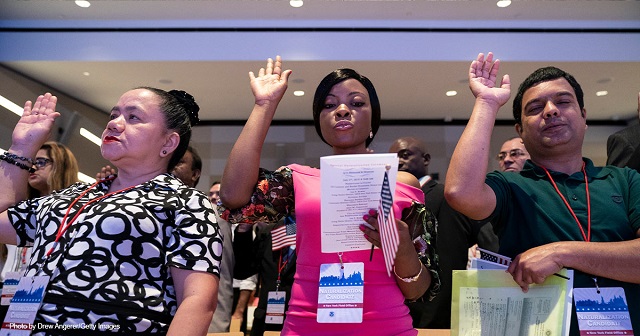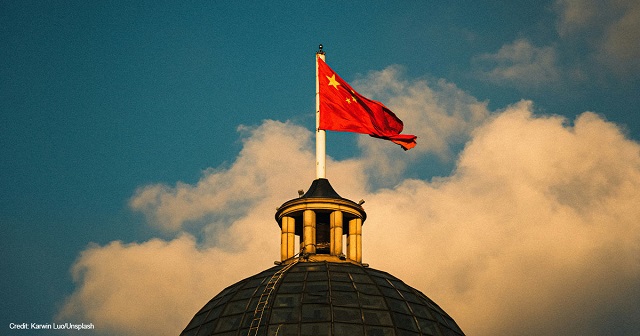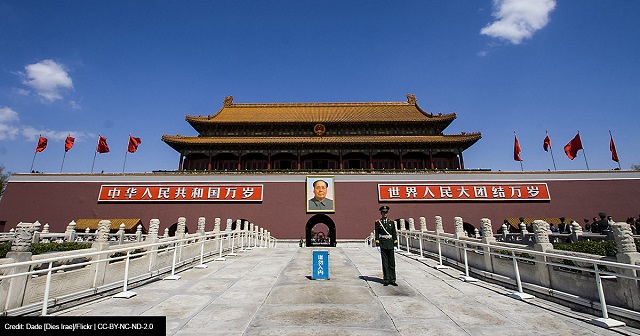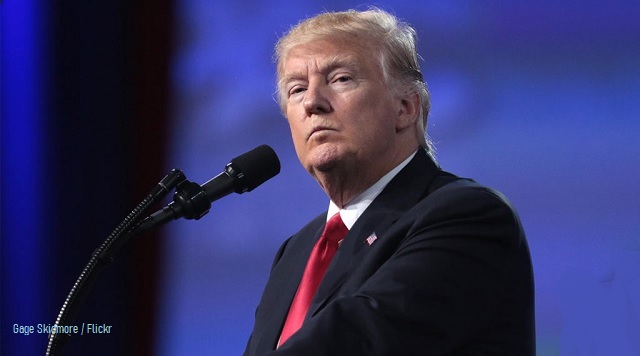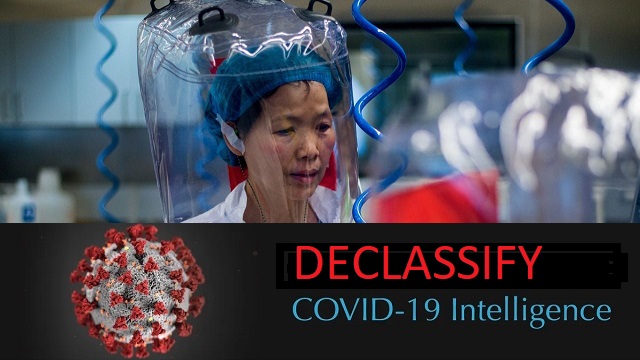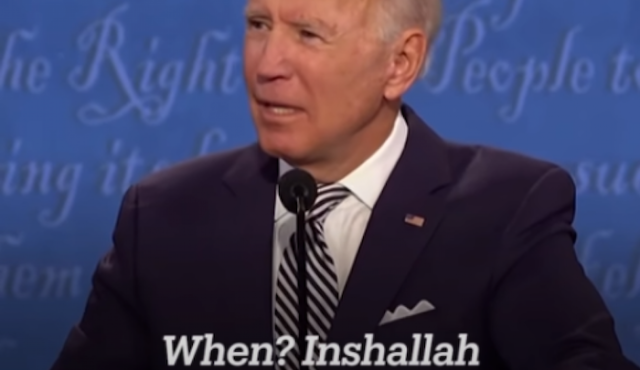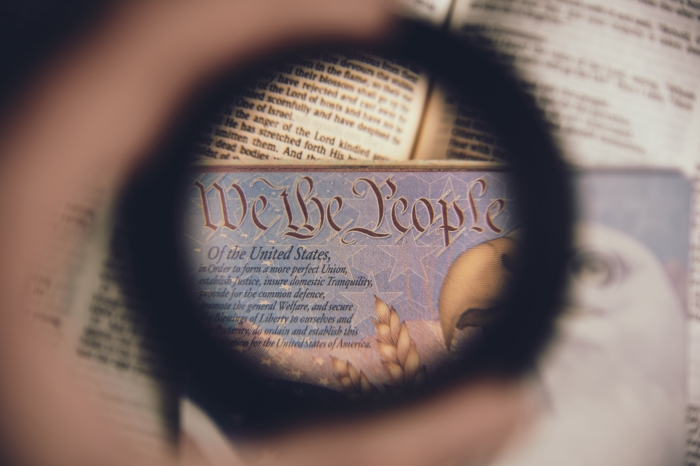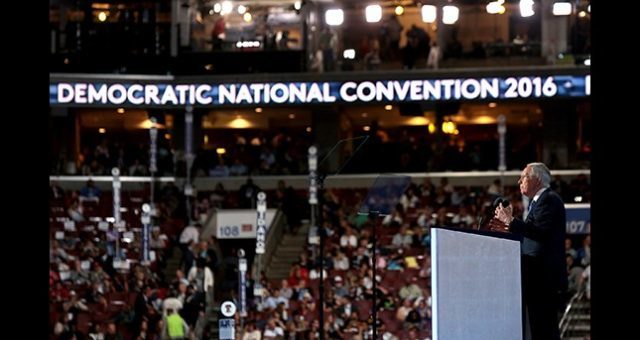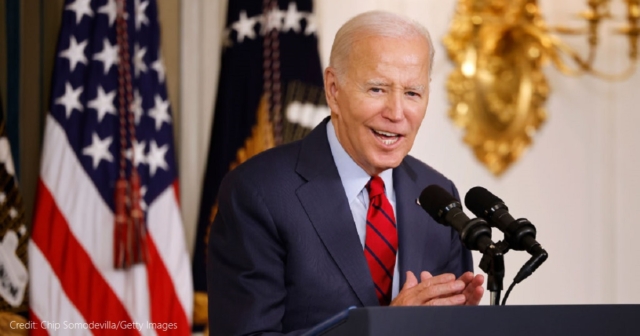
On the 22nd anniversary of 9/11, Joe Biden once again made history for all the wrong reasons — ignoring grieving families, lying to U.S. soldiers, and attempting to cut a plea bargain with terrorist masterminds while sending billions of dollars to the world’s leading state sponsor of terrorism. Here are seven examples:
1. Location
Joe Biden became the first president not to take part in ceremonies in one of the three cities associated with the 9/11 attacks: New York City; Washington, D.C.; or Shanksville, Pennsylvania. Instead, he spoke at Joint Base Elmendorf-Richardson, a location his remarks attempted to tie to the attacks. Add Biden — whom NBC News dubbed the “consoler-in-chief” — skipping this 9/11 memorial to his historic firsts of admitting the most illegal immigrants into the United States ever and the highest number of Americans to die of drug overdoses (problems which are correlated), and it paints the picture of a president who does not care about U.S. citizens or their losses.
His handlers blamed a scheduling conflict for Biden’s whereabouts — but who sets the president’s schedule? In any previous administration, the question would be rhetorical. Biden, or his handlers, felt it more important for the president to attend the G-20 Summit in India (or “the G7,” as Biden called it), followed by a trip to Vietnam — conveniently putting a younger, more “diverse” Democrat center stage during the event. (Biden’s disastrous performance at his Vietnam press conference may explain why.) Still, the president’s absence seemed anomalous enough that Biden felt required to explain the trip constituted “an essential part of how we’re going to assure the United States is flanked by the broadest array of partners and allies who will stand with us and deter any threat to our security.” If Biden thinks Vietnam will send troops to defend the United States, much less join a future U.S.-led nation-building exercise, he’s delusional — which may explain…
2. Joe Biden Lied about His Location on September 12, 2001
During his speech, Biden shared vividly invented memories of “Ground Zero in New York — I remember standing there the next day and looking at the building. I felt like I was looking through the gates of Hell, it looked so devastated.” In reality, video footage proves that Joe Biden attended a session of the Senate in Washington, D.C., on September 12, 2001. But self-aggrandizing fables hardly surprise coming from Joe Biden, who has embellished his past more than anyone since Walter Mitty. He also falsely “remembered” being “shot at” during a trip to Iraq (a shot landed outside his hotel) and searching for Osama bin Laden over “the superhighway of terror between Pakistan and Afghanistan where my helicopter was forced down” (due to a snowstorm), as well as being arrested in the 1980s while trying to meet future South African President Nelson Mandela (they met in 1990 in the Senate Foreign Relations executive committee room), taking part in sit-ins in the 1960s, meeting with members of the Tree of Life Synagogue after a mass shooting, and presiding over an America thriving due to Bidenomics.
3. Biden Praises the Mission to Kill Osama bin Laden — Which He Opposed
During his remarks, Biden tied himself to “heroes like the 9/11 generation … who followed Osama bin Laden to the ends of the earth and ultimately send him to the gates of Hell 12 years ago. And then last year, I made the decision to take out [Ayman al-]Zawahiri, the number two, who met the same fate.”
But Joe Biden opposed the mission that killed Osama bin Laden, as he boasted to an audience in 2012. Once again, video footage captures Biden telling a different audience a different tale:
“The president, he went around the table with all the senior people, including the Chiefs of Staff. And he said, ‘I have to make this decision. What is your opinion?’ He started with the National Security adviser, the Secretary of State, and he ended with me. Every single person in that room hedged their bet, except Leon Panetta; Leon said, ‘Go!’ Everyone else said ‘49/51,’ this …
“It got to me. He said, “Joe what do you think?” And I said, ‘Ya know, I didn’t know we have so many economists around the table. We owe the man a direct answer. Mr. President, my suggestion is don’t go. We have to do two more things to see if he’s there.’ He walked out, and he said, ‘I’ll give you my decision.’” (Emphasis added.)
Barack Obama dithered for 16 hours while the military waited for his decision. The Navy’s SEAL Team 6 succeeded in raiding bin Laden’s compound on May 2, 2011. Then-Vice President Biden blurted out that Navy SEALs killed the terrorist mastermind at a Washington dinner one day later. That August 6, a Taliban RPG blew up a Chinook helicopter in Afghanistan, killing 38 U.S. soldiers, including 17 members of SEAL Team 6. “In releasing their identity, [the Obama-Biden administration] put a target on their backs,” said the father of one of the soldiers killed that day.
4. Biden Seeks a Plea Bargain to Spare 9/11 Masterminds the Death Penalty
Just weeks before the speech, the Biden administration quietly initiated proceedings to cut a deal that would spare the death penalty for the mastermind of the 9/11 attacks, Khalid Sheikh Mohammed, and four other co-conspirators currently held at Guantanamo Bay. The families of 9/11 victims expressed outrage that they learned of the impending plea deal in “a form letter.” Sparing the terrorists a trial would suppress “information that no doubt would shed light on the identity of the 9/11 conspirators — secret and hidden — not only from the 9/11 families but from the American public.” Even now, as U.S. officials have just identified two more of the victims at the Twin Towers, the Biden administration seeks to conceal the identity of its perpetrators.
5. Biden Gave $6 Billion to Iran on 9/11
As Biden rhetorically crusaded against terrorism from a military base, his administration released billions of dollars to the leading state sponsor of terrorism. Under the terms of an agreement announced last month, Biden transferred $6 billion and five imprisoned Iranian assets in exchange for five American prisoners. Biden’s Secretary of State, Antony Blinken, notified Congress he had authorized the payment on 9/11.
“We used to call funding a terror state an act of treason,” said Rep. Darrell Issa (R-Calif.). No one denies Iran remains the global leader in terror sponsorship — including the Biden administration. “Designated as a State Sponsor of Terrorism in 1984, Iran continued its support for terrorist-related activity in 2021, including support for Hizballah, Palestinian terrorist groups in Gaza, and various terrorist and militant groups in Iraq, Syria, Bahrain, and elsewhere throughout the Middle East,” according to the most recent terrorist report from Biden’s State Department.
Iran’s terrorism barely outdates Joe Biden’s desire to send the Ayatollah U.S. taxpayers’ dollars. Biden also wanted to send Iran a check for $200 million with “no strings attached” immediately after 9/11/2001 to prove America’s goodwill. The New Republic reported in October 2001:
America needs to show the Arab world that we’re not bent on its destruction. “Seems to me this would be a good time to send, no strings attached, a check for $200 million to Iran,” Biden declares. He surveys the table with raised eyebrows, a How do ya like that? look on his face.
The Obama-Biden administration went on to give Iran $1.7 billion in 2016.
6. Biden Boasts of Protecting the Troops
During his remarks, Biden reassured the troops, “I will never hesitate to do what is necessary to defend the American people, just as I will never forget our sacred duty to those of you who serve.” Can anyone believe Joe Biden will protect Americans from another Taliban attack when his precipitous withdrawal abandoned possibly thousands of U.S. citizens to the Taliban’s tender mercies, and left soldiers so vulnerable that a suicide bomber killed 13 U.S. servicemembers? The Taliban incorporated numerous terrorists into its newly minted government — much as the Obama-Biden administration’s unconstitutional war put al-Qaeda affiliates in charge of Libya and its machinations installed a regime favorable to the Muslim Brotherhood, the fundamentalist group where Osama bin Laden met Ayman al-Zawahiri, in Egypt.
Yet the Biden administration seemed more interested in firing the Marine who criticized the collapse of Kabul, Lt. Col. Stuart Scheller, than the political advisers who engineered it.
To the extent Biden intends to keep a “sacred duty,” he certainly defines it differently than any of his predecessors: Pentagon spokesman John Kirby called funding abortion-related travel the “foundational, sacred obligation of military leaders.”
7. Praising ‘National Unity’ while Sowing Division
As the bipolar Biden administration frequently does, Biden mouthed the right words about “national unity” — fluffy phrases that belie his dedication to Balkanization, division, and enacting a racial spoils system for his supporters while demonizing, surveilling, and imprisoning his political opponents. Biden waxed nostalgic that after 9/11, “American flags sold out in every store and were placed in front of seemingly every home. … This day reminds us we must never lose that sense of national unity, so let that be the common cause of our time.” Americans must resist being “pulled apart by petty, manufactured grievances” inflamed by “the poisonous politics of difference and division.”
Such inspiring words make one wonder if the president remembers his “Dark Brandon” speech, flanked by soldiers, in which he denounced his political opponents as an existential threat to American survival in front of a black-and-red colored Constitution Hall. That speech flowed more naturally from the Biden administration, which has placed intersectionality and “equity” at “the center” of a “whole-of-government” plan to redistribute wealth and respect toward solidly Democratic-leaning voting blocs.
One need look no further than actions taken by Biden’s Department of Homeland Security last week — again, on the eve of 9/11. The DHS doled out Targeted Violence and Terrorism Prevention grants, which are intended “to prevent targeted violence and terrorism,” to:
- The Sexual Minority Youth Assistance League ($530,000) to provide “in-school” indoctrination “for LGBTQ+ youth ages 6-24” in D.C.-area schools. (You can read the details here.);
- American University’s Polarization and Extremism Research and Innovation Lab, or PERIL ($784,276), for “teaching children in grades K-5 how to recognize harmful online content.” PERIL (get it?) partners with the Southern Poverty Law Center (SPLC), the Rosa Luxemburg Foundation, the pro-gun control Everytown for Gun Safety, and the Anti-Defamation League. To “prevent radicalization,” PERIL encourages teachers to have “classroom conversations” about “the Movement for Black Lives and protests against systemic police brutality, to the far-right insurrection at the Capitol on January 6th.” PERIL’s leader, MSNBC columnist Cynthia Miller-Idriss, also claims that young people who “are more committed to a kind of gun culture also have higher scores on racial resentment and male supremacist ideas” and worries that Americans might be “easily persuaded by false information … about why they need a gun”;
- Boston Children’s Hospital ($820,990), which carries out transgender surgeries on children as young as 13, to train mental health practitioners how to identify and deal with people allegedly at “risk for targeted violence and terrorism”;
- University of North Dakota ($386,682.78) for an “educational module [that] expands understanding of Indigenous culture”;
- Columbia University ($820,332) to develop “an interactive program focused on storytelling”; and
- Michigan State Police Michigan Intelligence Operations Center ($425,485) to “raise awareness of how the community can identify and properly refer individuals who may demonstrate behaviors that suggest they may be going down a path toward violence.” This comes after investigators exposed an alleged kidnapping plot targeting Governor Gretchen Whitmer (D), creeping with allegations of entrapment involving more than a dozen FBI agents or informants.
Such “anti-terrorism” grants seem more intended to target the soldiers Biden addressed than Osama bin Laden’s spiritual progeny.
Taken together, the picture of Joe Biden that emerges is one of an exhausted vessel shafted by his handlers, whose decades of foreign policy experience have created a more dangerous world — and whose victims will receive either his animus or indifference.
AUTHOR
Ben Johnson is senior reporter and editor at The Washington Stand.
RELATED ARTICLE: Biden Admin Violated Americans’ Free Speech Rights during Pandemic, 5th Circuit Rules
EDITORS NOTE: This Washington Stand column is republished with permission. All rights reserved. ©2023 Family Research Council.
The Washington Stand is Family Research Council’s outlet for news and commentary from a biblical worldview. The Washington Stand is based in Washington, D.C. and is published by FRC, whose mission is to advance faith, family, and freedom in public policy and the culture from a biblical worldview. We invite you to stand with us by partnering with FRC.
